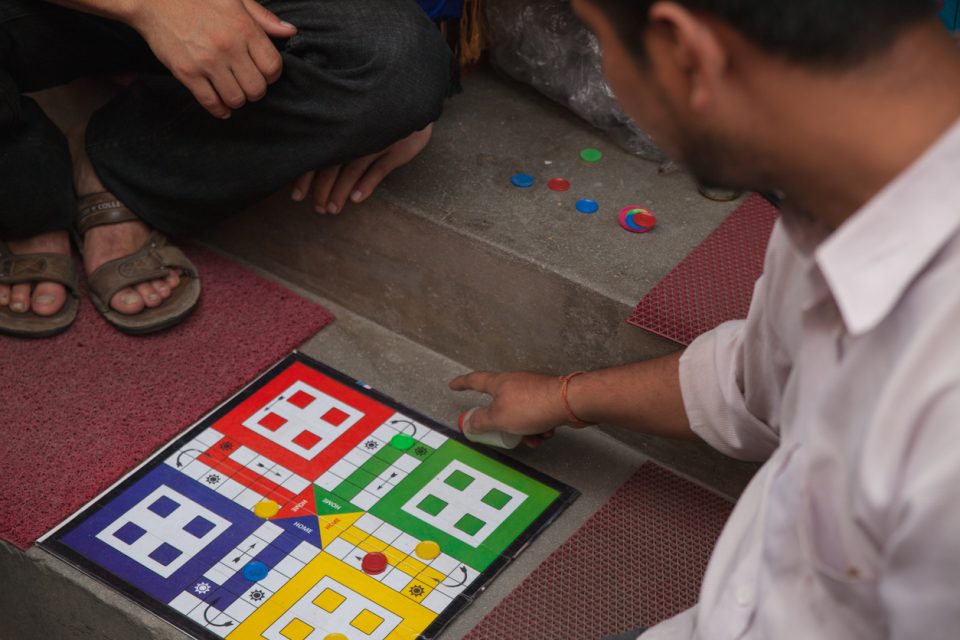
Traditional board games can help see through COVID-19 lockdown

With the COVID-19 lockdown literally locking us all up, whiling away time, when not working from home, has become a task. And with children too being restless, there is an added burden to keep everyone engaged. This is where the age-old tradition of playing board games has made its mark and is slowly crawling back into our lives.
Board games have a long history. Initially, a board game did not necessarily contain a physical board. It was said that ancient people drew patterns on the ground to play and while away their free time.
Board games have travelled through the ages and evolved in most cultures and societies. It was also played so that people could bond with others.
Related news: De-stress with these easy-to-cook comfort food recipes, this quarantine
Dusting the old memories of monopoly, ludo, snake and ladder, puzzles and cards, millennials are now trying to catch up on these traditional games.
Reliving your childhood to spend quality time, here are five games you can try to keep you engaged make through the lockdown.
Monopoly
First issued by Parker Brothers in 1935, the game requires players to roll two six-sided dice to move around squares/properties, some of which can be bought or traded and developed with houses and hotels. On buying a property, a player can collect rent from opponents, with the goal being to drive them into bankruptcy. Money can also be gained or lost through the game. This has become a part of international popular culture, having been licensed locally in more than 103 countries and printed in more than 37 languages.
Scrabble
Scrabble is a word game in which two to four players score points by placing small box type tiles, each bearing a single letter, onto a game board divided into a 15×15 grid of squares. The tiles must form words that, in crossword fashion, can be read left to right in rows or downward in columns, and must be part of a standard dictionary or lexicon.
Snakes and ladders
Snakes and Ladders, known originally as Moksha Patam, was invented by ancient Indians. The game is a simple race played between two or more players on a board having numbers with a number of ladders and snakes pictured on it, each connecting two specific board squares. The objective of the game is to navigate one’s game piece, according to die rolls, from the start (bottom square) to the finish (top square), helped or hindered by ladders and snakes, respectively. It is a sheer luck-based game.
Ludo
Ludo is a strategy board game for 2-4 players, in which the players race their four tokens or coins from start to finish according to the rolls of a die. Like other cross and circle games, Ludo is derived from the Indian game Pachisi, but simpler. The game and its variations are popular in many countries and under various names, according to reports.
Jenga
One of the best family games, Jenga is perfect for both adults and children. The rules are simple, you need to ensure that the tower with 54 blocks doesn’t tumble as you go about taking a block from a lower level and placing it on top, effectively creating a progressively more unstable structure.
Pallankuzhi
Pallankuzhi used to be played widely in Tamil Nadu before it spread to other parts of south India. It is played by two players on a board having two rows of 7 pits marked for each player. Each pit has an equal number of shells/seeds. A player takes the seeds from a pit on his/her side and puts one linearly across all the pits and stops only when he finds an empty pit. He/she takes all the seeds in the next pit and the one adjacent to it on the other side. This goes on until all pits are emptied and finally ends with one player capturing all the seeds.
Related news: Eat, sleep, entertain, repeat: 10 free subscriptions for children this lockdown
Other games include solving the Rubik’s cube, which has nine squares on each of its six faces in six different colours. The challenge is to bring squares one colour on each side by rotating the cube on 3-dimensional axles.
Chess, carrom and cards are other evergreen games that people play to cope with boredom in the lockdown. Most of these games are available online too and doesn’t need physical boards.


